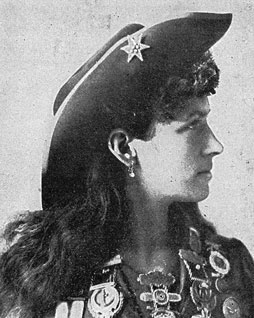Black History Month originated in 1926 by Carter Godwin Woodson as Negro History Week. The month of February was later chosen in honor of Abraham Lincoln and Frederick Douglass, who were both born in that month.
The banjo originated in Africa and until the 1800s was played only by blacks.
Elijah McCoy invented an automatic lubricator for steam engines in 1872. The term “the real McCoy” is believed to be a reference to the reliability of McCoy’s invention.
Music composer Quincy Jones is the most Grammy-nominated artist in the history of the awards with 76 nominations.
Buffalo soldiers is the name given to all-black regiments of the Army, which started in 1866. More than 20 buffalo soldiers received the highest distinction, the Medal of Honor, for their service—the highest number for any military group. The oldest buffalo soldier died in 2005 at 105.
Cathay Williams is the only known woman Buffalo soldier. She was born into slavery and enlisted in the Union Army as William Cathay in 1866. She was given a medical discharge in 1868.
Lewis and Clark were accompanied by a black slave, known only as York, when they made their 1804 expedition from Missouri to Oregon. York’s presence aided in the interaction with the American Indians.
In the mid 1800s, Philadelphia was known as the black capital of the world because of its strong abolitionist presence and groups such as the Female Anti-Slavery Society and the Young Men’s Anti-Slavery Society.
Ray Charles Robinson, pioneer of blending gospel and blues, shortened his name to Ray Charles to avoid confusion with boxer Sugar Ray Robinson. Charles was among the first inductees into the Rock and Roll Hall of Fame at its inaugural ceremony.
Walker Smith Jr. borrowed Ray Robinson’s Amateur Athletic Card and became the Lightweight champion under Robinson’s name. His boxing was considered to be “as sweet as sugar” and the name Sugar Ray
Robinson stuck. He was the first boxer in history to win a divisional world championship five times.
Source: Biography Channel, www.biography.com

























